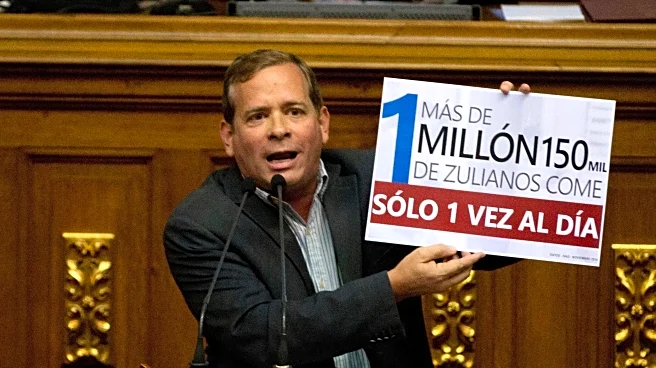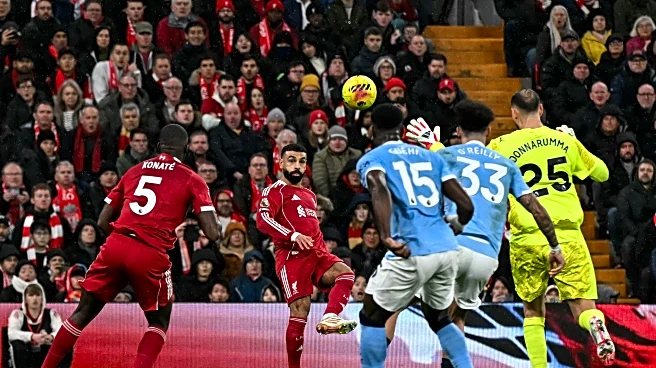What is the story about?
What's Happening?
Moldova's pro-European Party of Action and Solidarity (PAS) has won a crucial parliamentary election, securing 50.05% of the vote against the pro-Russian Patriotic Bloc, which garnered 24.3%. This election is seen as pivotal in Moldova's post-independence history, with the choice between further integration with the European Union or returning to Russia's influence. President Maia Sandu, who leads PAS, aims to continue Moldova's EU integration path, targeting membership within five years. The election was marred by allegations of Russian interference, including disinformation campaigns and cyberattacks targeting electoral systems and government websites.
Why It's Important?
The election results are significant for Moldova's geopolitical orientation, as they reinforce the country's pro-European stance amid ongoing tensions with Russia. Moldova's path towards EU membership could lead to increased political stability and economic opportunities, reducing its reliance on Russian energy. However, the allegations of Russian interference highlight the challenges Moldova faces in maintaining its sovereignty and democratic processes. The outcome may also influence regional dynamics, as Moldova is strategically located between Romania and Ukraine, areas of interest in Russia's geopolitical strategy.
What's Next?
Following the election, PAS needs to secure a majority in the 101-seat parliament to form a government. President Sandu's administration will likely focus on strengthening democratic institutions and continuing EU integration efforts. Meanwhile, the pro-Russian opposition, led by Igor Dodon, has called for protests, indicating potential political unrest. Moldova's government will need to address economic challenges, including inflation and high gas prices, while countering Russian influence. The international community may increase support for Moldova's EU aspirations, further complicating relations with Russia.
Beyond the Headlines
The election underscores the broader struggle between Western and Russian influences in Eastern Europe. Moldova's move towards the EU could inspire similar shifts in other post-Soviet states, potentially altering the region's political landscape. The allegations of Russian interference raise ethical concerns about foreign influence in democratic processes, prompting discussions on cybersecurity and electoral integrity. Moldova's situation may lead to increased international scrutiny and efforts to safeguard democratic institutions against external threats.

















